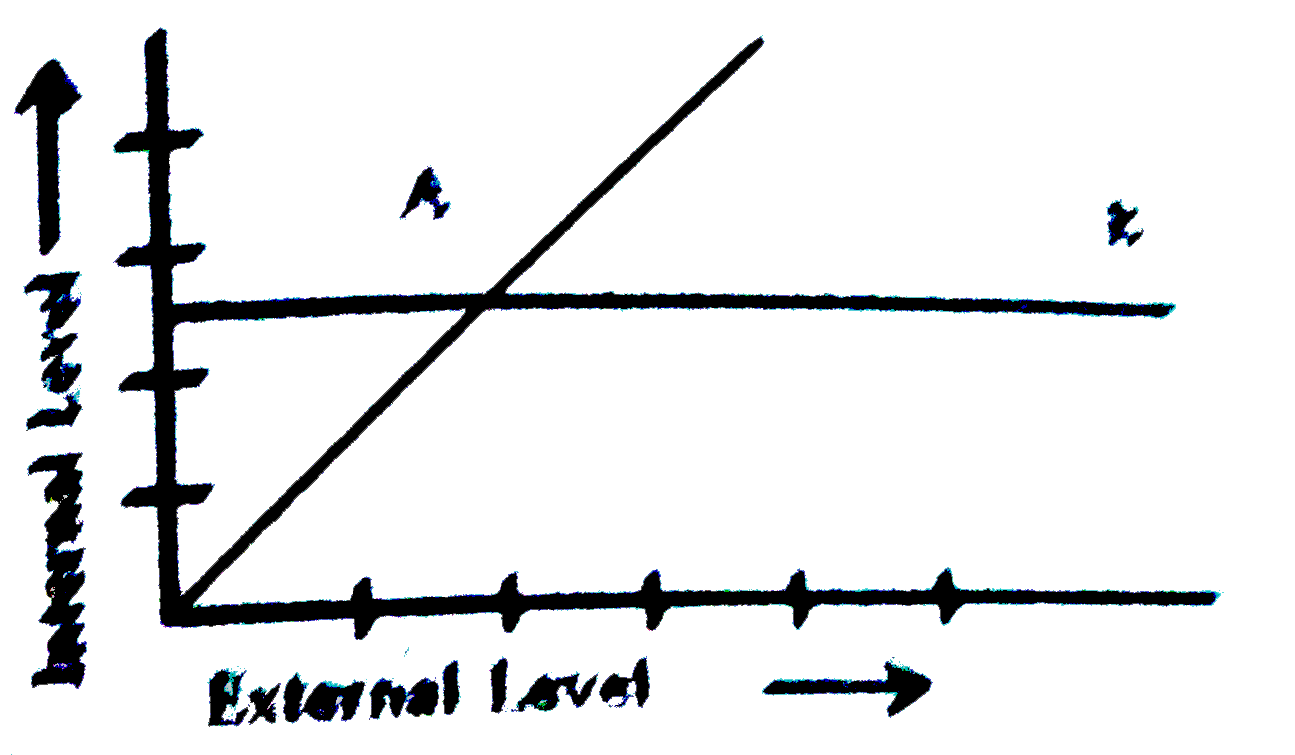Natural selection favours those allels which make the organisms better adapted to the environment. Under which condition the two alternative alleles make an organism equally well adapted?
a.Genetic drift
b.In absence of predator
c.mutation
d.Bottle neck effect
The correct Answer is:B
To answer the question regarding the conditions under which two alternative alleles make an organism equally well adapted to the environment, we can follow these steps:
1. Understanding Natural Selection: Natural selection is a process where certain alleles (gene variants) are favored because they provide better adaptation to the environment, leading to increased survival and reproduction of organisms carrying those alleles.
2. Identifying the Context: The question asks under what conditions two alternative alleles (for example, a dominant and a recessive allele) can make an organism equally well adapted. This implies that both alleles do not confer a significant advantage or disadvantage in a specific environment.
3. Considering Environmental Factors: One significant environmental factor that influences adaptation is the presence or absence of predators. Predators can exert selective pressure on populations, favoring alleles that enhance survival against predation.
4. Absence of Predators: In the absence of predators, there is less selective pressure on the population. This means that both alleles (dominant and recessive) can potentially lead to similar levels of fitness in the organisms. Without predators, the organisms can thrive regardless of which allele they possess.
5. Conclusion: Therefore, the condition under which the two alternative alleles make an organism equally well adapted is the absence of predators. In this scenario, natural selection does not favor one allele over the other, allowing both to coexist with equal adaptability.
Final Answer:
The two alternative alleles make an organism equally well adapted in the absence of predators.
---
The two alternative alleles make an organism equally well adapted in the absence of predators.
Topper's Solved these Questions
- EVOLUTION BOOK - VMC MODULES ENGLISHCHAPTER - EVOLUTION EXERCISE - IMPECCABLE
54 Videos
- EVOLUTION BOOK - VMC MODULES ENGLISHCHAPTER - EVOLUTION EXERCISE - ENABLE
50 Videos
- ECOSYSTEMBOOK - VMC MODULES ENGLISHCHAPTER - ECOSYSTEMEXERCISE - IMPECCABLE
53 Videos
- HUMAN HEALTH & DISEASE BOOK - VMC MODULES ENGLISHCHAPTER - HUMAN HEALTH & DISEASE EXERCISE - IN-CHAPTER EXERCISE-E
10 Videos
Similar Questions
Find the condition under which a convex mirrior can make a real image .
View SolutionPresence of an allele that can help an organism under changed conditions is called
View SolutionWhich of the following paires of organs represent adaptive convergence?
View SolutionWhich organism are used to make bread and beer?
View SolutionBuildup of organic material in soil is under which of the following conditions to
View Solution(a) The graph given below represents the organisms response to temperature as an environmental condition.
(i) Which one of the two lines represents conformers and why ?
(ii) What does the other line in the graph represent and why ?
(b) Mention the different adaptations the parasites have evolved with, to be able to successfully complete their life cycles in their hosts.

View SolutionName the main features of carbon which make it a unique element that it forms a large number of organic compounds.
View SolutionThe condition in which only one allele of a pair is present in a diploid organism is known as :-
View Solution(a) State how the constant internal environment is beneficial to organisms.
(b) Explain any two alternatives by which organisms can overcome stressful external conditions.
View Solution(a) State how the constant internal environment is beneficial to organisms.
(b) Explain any two alternatives by which organisms can overcome stressful rxternal conditions.
View Solution
